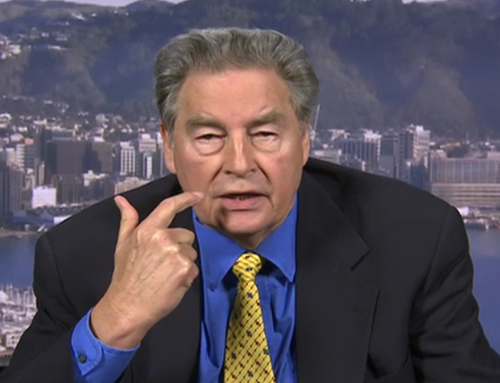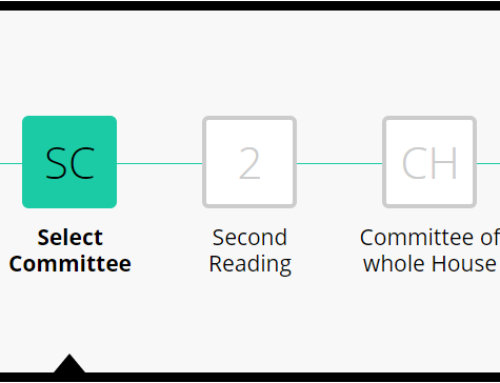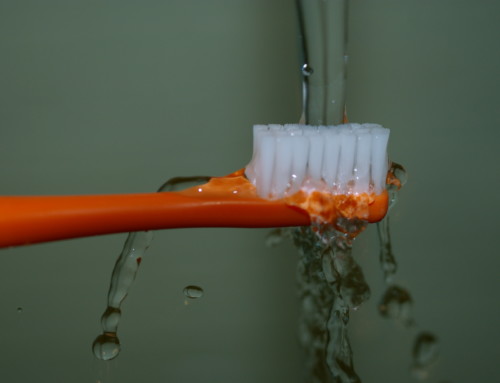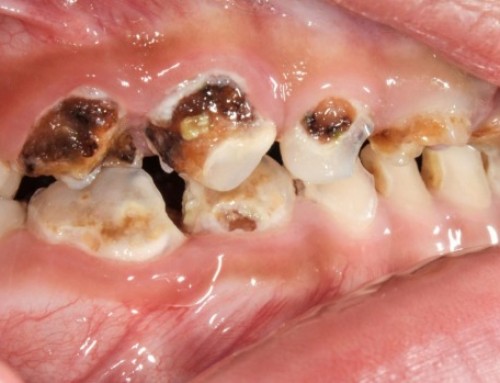Whakatane District Councillor Russell Orr has written this open letter around the whole fluoridation situation. Being against fluoride being added to the water hasn’t stopped him from pointing out all the flaws in this decision.
Open Letter to Councillors
We are to have another debate on the fluoride issue and I make no apologies for helping to make that happen because I don’t believe that we properly debated this issue last week. I certainly wasn’t prepared because earlier the Mayor had indicated to me that he supported the Status Quo and I was happy to go along with that.
The Mayor has released an email he has sent to certain members of the public in which he attempts to explain his position. Explaining is losing but nevertheless the Mayor explains that Councillors took into account the non-binding referendum we held in 2013 amongst other things, but doesn’t really explain why he and 5 others Councillors then chose it ignore it.
The Mayor’s position in a nutshell, appears to be that it was more important to send a message to Central Government (and avoid responsibility) than it was to do something proven to help children’s oral health and comply with the wishes of the community.
It is this aspect of the decision that concerns me most. This is not the way this Council usually makes decisions. Normally we would consider the options and select one to be consulted on. We could have done this for the fluoride issue but instead we chose to proceed by way of referendum.
Referendum is not a cheap option and more importantly it is not a submission process. You can have one or the other but not both. Council has missed this point and ‘invited’ submissions from certain persons. Again this is not good process. If you are going to consider submissions as part of the decision process then submissions need to be open to everyone not just a selected few.
The public were not able to make a submission unless they were invited. That was obviously unfair and a mistake in my view.
Furthermore it was apparent that some Councillors were influenced by the submissions made on the day. This was evidenced by the questions asked and comments made around statistics that were produced at the last minute by submitters against fluoride. Remember they did this during a submission process that wasn’t open to everyone.
The way Council make decisions is well regulated by the Local Government Act and we have to be very careful as to the process we use. On the matter of process alone a judicial review of the decision of 28th January 2016 would succeed in my view.
On the moral side of the argument we are elected to make decisions on behalf of the community and most of the time we use our own philosophy and personal views, combined with information, advice and submissions, to make a decision. The exception to this is when we decide to call a referendum on a particular issue. Then we are handing back some of the decision making power to the people.
There is simply no point in having a referendum if you are going to ignore the result. As an example I am against fluoride being added to the water on philosophical grounds. I am an advocate of personal responsibility and believe that people should be responsible for their own health needs and that of their children.
But this matter went to a referendum and the wishes of the people were clear. No matter what my personal view on this issue is, I am not arrogant enough to ignore the result. Imagine if the results of the flag referendum, were strongly in favor of retaining the old flag but the Government decided to change to the new one anyway!
As far as I can ascertain no Council to date has ever gone against the result of a public referendum on fluoride. Hamilton initially proceeded without one and horribly misread public opinion. When a referendum was finally held showing the level of support they agreed to put the fluoride back.
But we can’t even hide behind the excuse that we didn’t know what the public wanted, it’s just that some of us have chosen to ignore them. If you are saying that you know better than the people of Ohope and Whakatane who supported the continuation of Fluoride in their water supply, then good luck with that!
Russell Orr 5/2/16








Russell, as a Councillor, you have a duty of care for the entire community not just those who voted. You heard from the experts on both sides and the Council came to a sound decision on that basis. The referendum was non-binding. Move on and focus on more important issues for your community.
“as a Councillor, you have a duty of care for the entire community not just those who voted”
And that is what he is doing. You have to admit, the whole process around removing CWF was done incorrectly.
“You heard from the experts on both sides”
Who were the experts on the anti-fluoride side?
“The referendum was non-binding.”
As he said, they are expensive. Why have one if you going to ignore it? It is silly if you ignore the people.
“Move on and focus on more important issues for your community.”
Bad oral health isn’t important?
“You have to admit, the whole process around removing CWF was done incorrectly.”
No, the Council used the information to make a sound decision regarding fluoridation.
“Who were the experts on the anti-fluoride side?”
That is a bit arrogant of you Daniel but it is what we have come to expect. Actually it doesn’t make a difference who presented the case against fluoride. The fact is that local dentist John Twaddle and Neil De Wet of Toi Te Ora Public Health Service failed to convince the Councillors. Get over it.
“As he said, they are expensive. Why have one if you going to ignore it? It is silly if you ignore the people.”
Dan the referendum was ‘Non-binding’. Do you not understand that? Councillors don’t have to follow the result of the referendum.
“Bad oral health isn’t important?”
Yes, and that is why the Council is looking at diverting the funds originally used to add a hazardous waste to the shared public water supply to a program that actually works.
I think Russell is being political here. Pretending to be opposed to fluoridation and then being apart of moves to challenge the decision. We’ll be doing what we can to let the voters of Whakatane know of what he is trying to do.
Only 22 of 26 Councils fluoridate in New Zealand now Daniel.
The experts may well have failed to covince 6 of the councillors but so what. Mary Byrne and Jon Barnett are not experts – they are woo merchants with strong organisational, ideological and commercial links to the “natural”/alternative health industry.
Let’s see what happens in Thursday now that councillors have had a chance to consider the consequences.
“No, the Council used the information to make a sound decision regarding fluoridation.”
So you totally disagree with what Russell Orr said?
“That is a bit arrogant of you Daniel but it is what we have come to expect.”
How was it arrogant? I wasn’t there. I was just asking who was your expert?
Did you Skype someone in? Showed a letter? Etc.
“Dan the referendum was ‘Non-binding’. Do you not understand that? Councillors don’t have to follow the result of the referendum.”
Yes I know. But just seems like a waste of money.
“Yes, and that is why the Council is looking at diverting the funds originally used to add a hazardous waste to the shared public water supply to a program that actually works.”
$3000 or so isn’t going to fund much. You need at least $50 per child at least (if just targeting children).
“Pretending to be opposed to fluoridation”
I doubt it.
Russell, Deputy Mayor Judy Turner has stated that only referenda with a result over 65% participation rate should be considered.
“Personally I am favourably disposed to flouridation, however if elected as a Whakatane/Ohope Ward Councillor, I will be responsive to the wishes of my ratepayers. HOWEVER I will want to be reassured that participation rates of ratepayers in the referendum were significant (at least 65% of possible voters) and that the result is conclusive.” Judy Turner 2013 statement on fluoridation. http://fluoridefree.org.nz/campaigns/whakatane/
The result in the NON-BINDING referendum in 2013 was only 30%. According to Judy Turner’s previous comment, Whakatane Council made the right assessment of the referendum result, which was to temper it with the submissions received.
Kane – you are quoting a FFNZ claim – but ignoring the fact she also said that the issue should be decided by a referendum without making these qualification. Irrespective, the people have spoken and the coucil ignores that at its peril – after all, voters might get the impression that councillors will not step down when voted out of offie becuase of the low turnout. 🙂 .
And you are quite wtrong, over 60 percent of voters in Whakatane supported continued fluoridation and over 70 percent in Ohope.
Only 22 of 67 Councils.
Only 22 of 67 Councils.
Do you have the population totals that these councils serve? The population comparison between fluoridated and nonfluoridated regions would be a more relevant and interesting figure.
“The population comparison between fluoridated and nonfluoridated regions would be a more relevant and interesting figure.”
The recent cost effective analysis from massey quotes “Approximately 56% of New Zealander’s have access to fluoridated water”.
http://publichealth.massey.ac.nz/assets/Uploads/Fluoride-poster-draft-5-final-CORRECTIONS-3.pdf
I understand it is not cost effective to offer fluoridation to small or rural population populations. That almost 60% of NZ’s total population does receive fluoridated water strongly suggests very high uptake in metropolitan and other areas in which it is effective to supply it.
Kane’s factoid seems disingeniously designed to suggest otherwise.
“Kane’s factoid seems disingeniously designed to suggest otherwise.”
Indeed. It isn’t cost effective with water supplies fewer than 1000 people.
Ken, it is a direct quote from Turner. Yes, lets see what Councillors do now. Turner is also running for the DHB so it may explain why she is leading this divisive and unnecessary motion to review the sound decision by Whakatane District Council. I hope she declares that interest at the Council meeting – it could be grounds for a judicial review if she doesn’t.
A quotem on a very unreliable web site known for dishonesty.
But she also said:
“Personally I would love to see all water supplies that Council Manages include fluoride, but there was several communities who seem opposed to its inclusion and as we agreed to run a referendum (albeit non-binding), it should be given much higher consideration than it was last week.”
It’s a matter of demcioracy – as it was in Hamilton. Hamilton councillors ignored their voters and ended up looking stupid as a result – and Hamiltonians were embarrased.
Ken, for the record how many people heard you speak at your Auckland presentation last year?
I have to laugh at the judicial review threat – have you been talking to the NZ Health Trust – the big business group financing anti-fluoide legal activity?
Kane On the whakatane Facebook page you make a big statement about how the fluoridated areas and non fluoridated areas had little difference
I notice you “forgot ” to mention the letter you recieved from the D.H.B. that contained some interesting facts that would have made your story rubbish, if they had been released at the time of the council decision
The Whankatane public need to take note of this and remember. Never trust the arguments from the activists at any stage. They are good at adjusting the facts to suit the required result
“I notice you “forgot ” to mention the letter you recieved”
The letter which I added into the main post (in case anyone missed that).